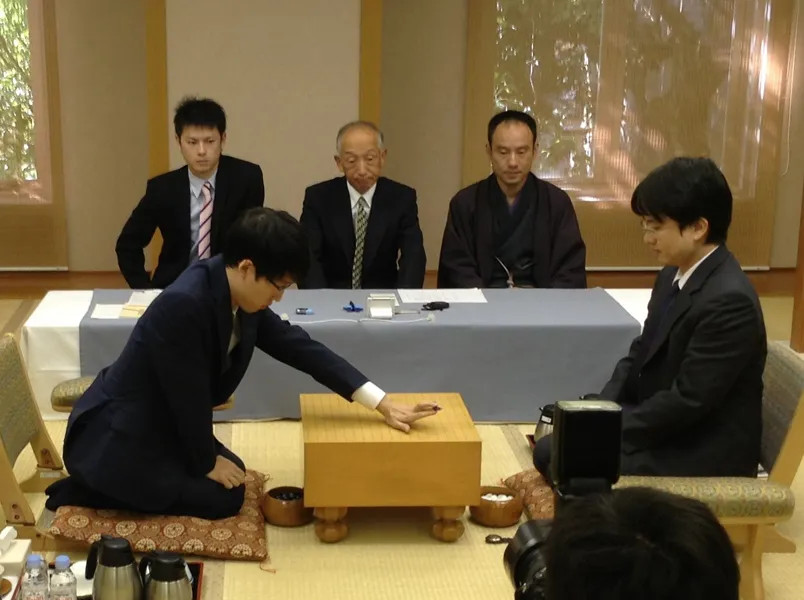Mindset
Approaching Go with a steady mind
Introduction
In Go there is a proverb: “You gain 2 stones when watching”. The idea is that when you’re analyzing a game between two players, you’re two stones (i.e. ranks) stronger than you usually would be if you were playing yourself.
The reason is nerves. It’s much easier to analyze a game that we’re not emotionally invested in, and it’s much easier to succumb to emotions and biases when your victory is on the line.
For that reason, mindset is as much an important skill as tesuji, joseki, tsumego, etc. Some say it’s the most important skill.
Unlike other abstract strategy games, from the beginning, the objective’s in Go are nebulous and unknown. It starts without shape and it’s not until 50 moves later – once we’ve defined the shape of the game – that you have any idea what to do.
In a way, as Go players whenever we start a game we face the unknown and because of that, we sometimes let our nerves get to us.
In fact, it’s not uncommon for professional players to meditate before important games to overcome those nerves.

Iyama Yuuta Meijin vs Yamshita Keigo 9P during a meijin tournament. From news-postseven.com
The Right Mindset
Winning the game should be your last and least important objective because if winning games of Go is the only thing you enjoy about it, you won’t last long.
Instead, your first objective should be to have fun. Find what you enjoy about the game, whether it be learning something new, uncovering the “truth” of Go, finding fun tesujis or trying different fuseki (i.e. openings), etc.
Without making your games fun, you will lose motivation regularly.
Your other focus should be to play balanced, sensible moves while respecting your opponent and their moves.
The Wrong Mindset
Approaching a game with the wrong mindset will result in poor performance and less enjoyment.
A poor mindset can lead to:
- Being too attached to your stones (inflexible play)
- Trying to strong-arm your opponent
- Playing too quickly because your opponent is
- Not taking the time to defend your weak groups
- Trying to get things you have no right to (e.g. a very deep invasion)
- Trying to save or play out one of your groups that you know is already dead (erases your aji)
- Not respecting the weight of your opponent’s moves
- Playing in a rabid, hyper-aggressive manner
- Not enjoying the game
Overcoming Anxiety
Anxiety can come up when we play others, especially if we don’t know them personally.
Because it’s wise to play as if your opponent will play the best move in every situation and you are the one who determines what is the best move, in a way, it’s you vs the board and you’re trying to play the best move possible. It doesn’t matter your opponent is there or who your opponent is.
In a way, they’re more your partner in improving at Go then your enemy. You are each other’s devil’s advocates.
Another type of anxiety is ladder anxiety which occurs when your rank rises and you’re afraid it will go back down.
While your rank might fluctuate to a degree or even drop sometimes, your skill and knowledge of the game hasn’t gone anywhere so try not to focus on rank so much.
It’s also natural for Go players to have occasional drops in ranks as we experiment with different styles of play and moves that we don’t know and it doesn’t mean you should stop experimenting.
Good and Bad Habits
Enter your game with a calm, focused mind. When playing, give thought to every move you make, looking for the best move possible.
Try to experiment with moves, openings or ideas that you don’t understand yet or seem fun to you, but don’t overplay (i.e. make moves that you can see are not good in the hopes that your opponent will make a mistake).
Take note of how the stones flow around the board and the negotiations that are taking place.
Be humble in victory and gracious in defeat. Remember that when you win, your opponent is dealing with the loss and when you lose your opponent has become happy in victory.
Summary
By maintaining a balanced mindset towards Go, we can improve our performance and enjoy the game more.
I should mention an exception to this way of playing is tournament games. Of course, when playing in a tournament, it’s best to still play in a focused, balanced manner but winning would be your primary objective and you can leave experimenting to your casual games.

